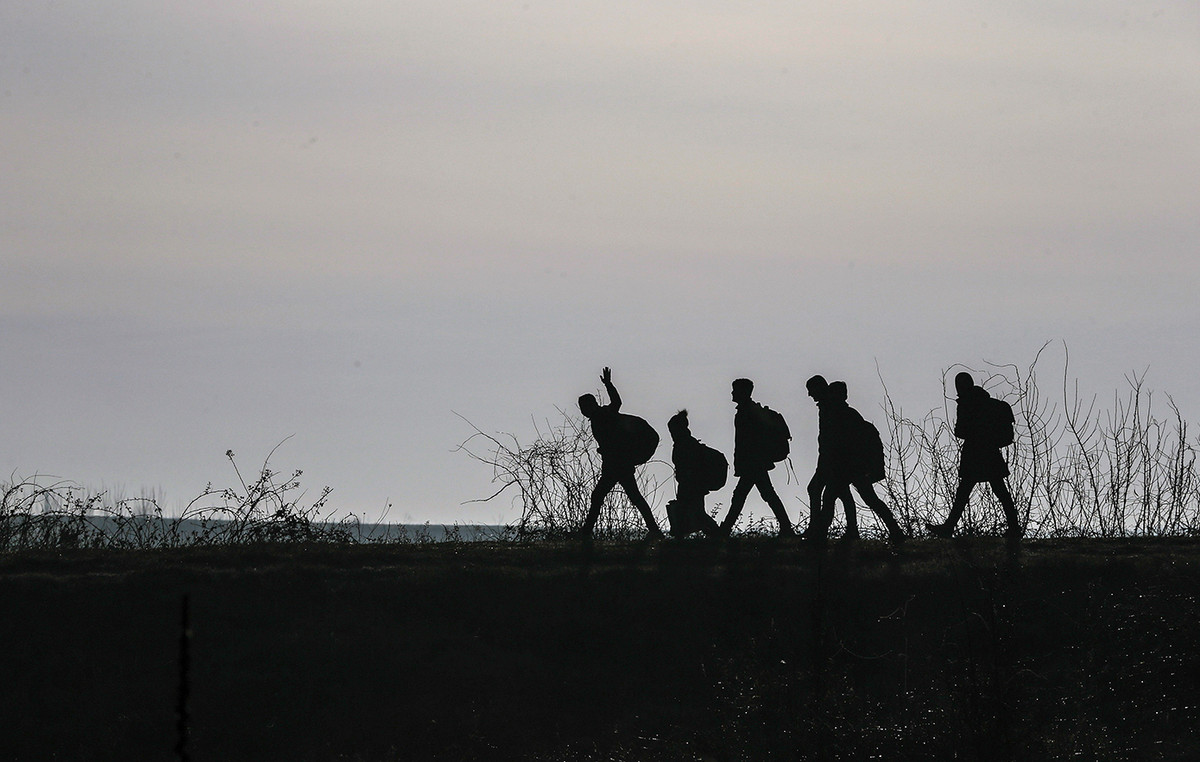Environmental disasters and extreme temperatures often create a cascade of unexpected complications, including flooding, power outages, mold damage, as well as health risks such as heatstroke, dehydration, and respiratory and heart complications in the case of heat waves and low humidity. However, there is also a greater risk of food poisoning in extreme weather events.
According to the Centers for Disease Control and Prevention (CDC) of the United States, there is a possibility of an increase in foodborne illnesses such as salmonella and E. coliafter natural disasters, when blackouts affect cold storage. Furthermore, heat can also facilitate the proliferation of bacteria and fungi in food, which makes properly refrigerating food even more essential.
Below, experts list some ways to keep your food safe in extreme weather.
Keep the refrigerator door closed
Under normal conditions, your refrigerator should be kept at 40°F or below, and your freezer at -18°C or below, according to the CDC. When the power goes out due to a storm, it’s a race against time to make sure food doesn’t spoil.
“Bacteria multiply rapidly between temperatures of 40 degrees Fahrenheit (4°C) and 140 degrees Fahrenheit (60°C),” says health expert at CNN Leana Wen. “Refrigerators can generally keep food cold if the power is off for less than four hours and the door is not opened.”
To ensure you have the correct temperature, the CDC suggests purchasing a food thermometer.
Freezers can give you more time
Food stored in a freezer at -18°C can be safely refrozen or cooked as long as the temperature does not rise above the critical 4°C mark, according to the CDC.
Once the power is cut, a full freezer can maintain a safe temperature for up to 48 hours with the door closed. But if it is half full, this time can be reduced to 24 hours – again, only if the door remains closed. Therefore, experts suggest minimizing any activity involving the refrigerator.
Some people may resort to putting more items in the freezer to save time. Bill Marler, a food safety attorney in Seattle, says there are a few factors to consider.
“If you do this, you are essentially adding warmer food to a cold environment, as if you were putting hot food in the refrigerator,” the expert tells CNN . “This will raise the temperature of the entire freezer and reduce the time that food can remain safe.”
To know when all is lost, the CDC and other food experts follow a simple adage: “When in doubt, throw it out.”
Some foods present different risks
Pre-packaged, ready-to-eat foods can pose a particular problem when considering food safety.
“Things like improperly stored deli meals, deli meats, sausages and even some types of soft cheeses can be linked to listeria [um tipo de bactéria],” says Marler. “Vegetables and fruits can be a little easier, because they indicate when they are not good to eat. But with some ready-made foods, it might be harder to tell.”
He advises people to avoid cross-contamination. “Do not let sausage liquid contaminate other foods and store meats — even cooked meats — separately from fruits, vegetables and the like.”
Keeping food separate is a practice that should start at the grocery store, according to the CDC. They should also be kept in separate areas of the refrigerator any day of the week, regardless of weather conditions.
Cooked does not mean safe
While items like raw milk and meat are the first things to consider when emptying a very hot refrigerator, in the event of a power outage, Wen said it’s important not to forget cooked foods.
“Cooked food should not be left at room temperature for more than two hours. Leftovers that cannot be kept at 40 degrees Fahrenheit (4°C) or below should be thrown away,” it states.
The CDC also has a helpful chart on how long food can stay fresh in a working refrigerator, whether open or closed.
People with pre-existing conditions should be more careful
The effects of foodborne illnesses can range from mild discomfort to life-threatening complications. People with pre-existing conditions may be more at risk for serious illness, according to the CDC.
“It varies depending on the type of contamination, but pregnant women, very young and very old people, and those with compromised immune systems are most at risk of contracting serious illnesses, such as listeria, which can occur with improper handling or storage of food,” says Marler.
If you belong to one of these high-risk groups, the CDC recommends paying special attention to food safety procedures when purchasing, preparing, cooking, and storing your food.
See dietary changes that reduce deaths and environmental impact
This content was originally published in Extreme weather events can increase the risk of food poisoning on the CNN Brasil website.
Source: CNN Brasil
I am an experienced journalist and writer with a career in the news industry. My focus is on covering Top News stories for World Stock Market, where I provide comprehensive analysis and commentary on markets around the world. I have expertise in writing both long-form articles and shorter pieces that deliver timely, relevant updates to readers.







